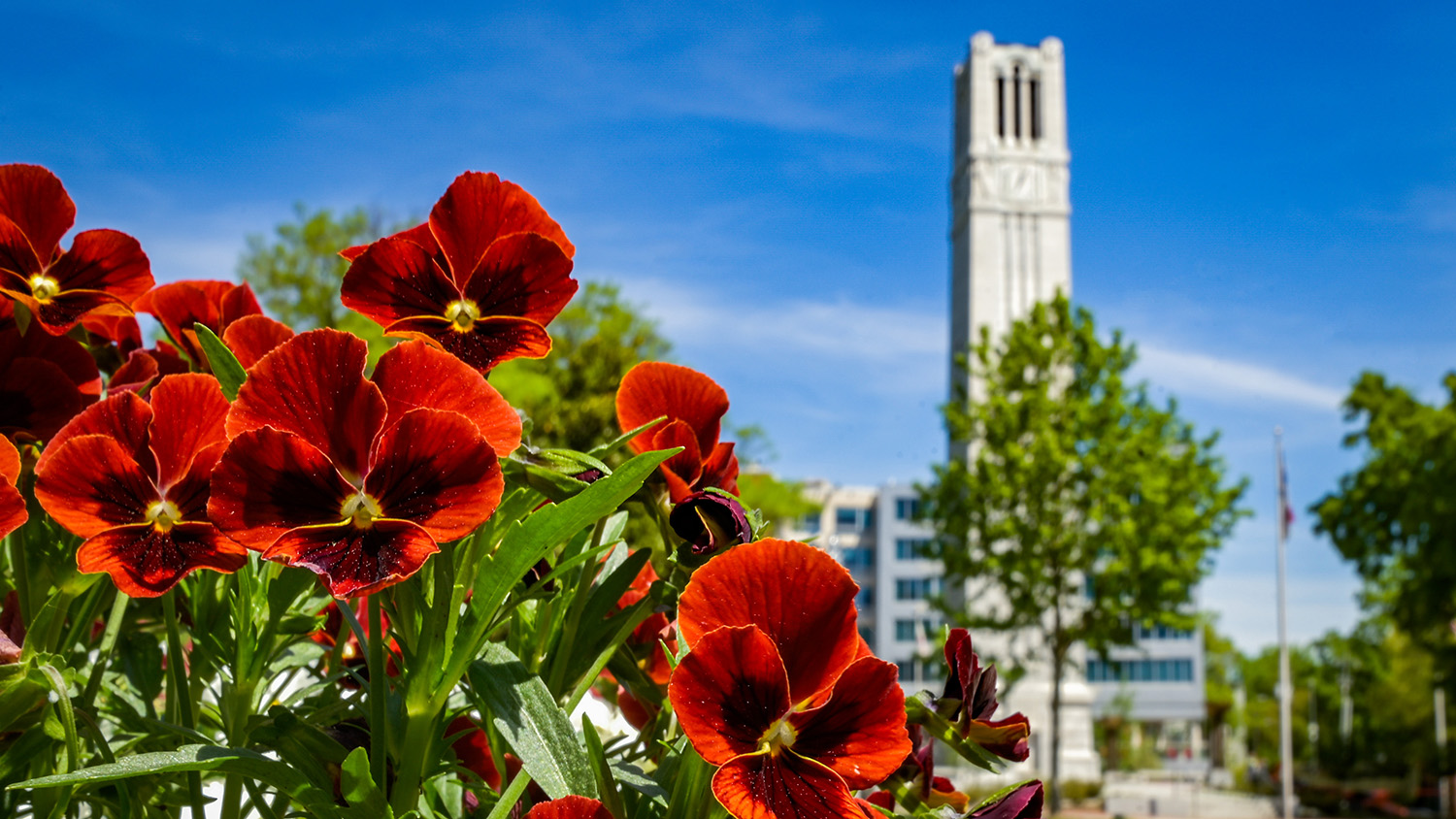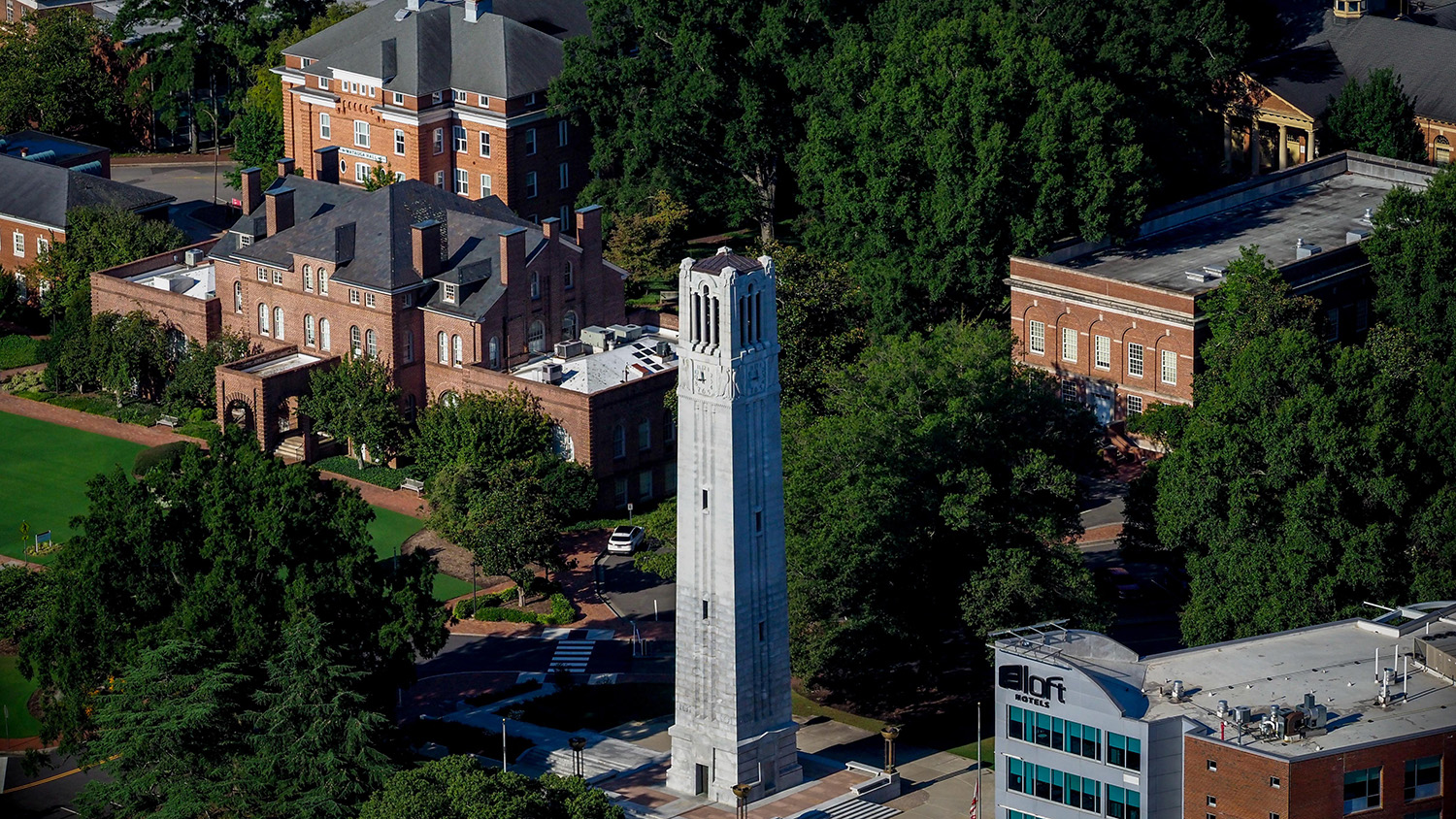Faculty Chat: Student Success
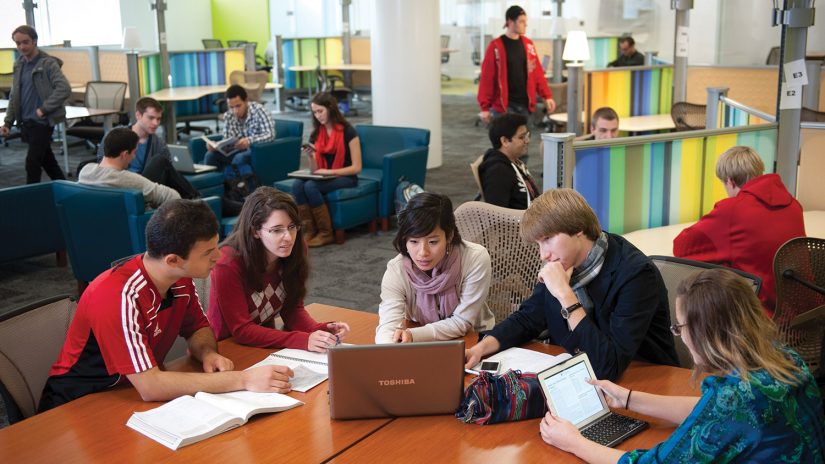
NC State strives to create a comprehensive educational experience that prepares students for real-world impact. The university’s activities and initiatives related to student success grew exponentially over the past five years, and these efforts and results can be viewed in the recent Five-Year Student Success Report.
Faculty and staff play an important role in making student success a reality for the thousands of undergraduate and graduate students coming to campus each year. This includes faculty members Jordan McMican and Natalie Cooke. McMican, an academic advisor and lecturer in Exploratory Studies, recently won the Division of Academic and Student Affairs’ Outstanding Teaching Award. Cooke, a teaching assistant professor and coordinator of the undergraduate nutrition program in the Department of Food, Bioprocessing and Nutrition Sciences, received the 2016-2017 New Faculty Advisor Award.
We spoke with McMican and Cooke on their efforts to support student success at NC State, the integral nature of student success to the entire campus community, and areas for future growth.
What does student success mean to you?
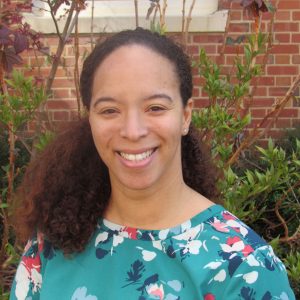
JM: Student success means that a new member of the Wolfpack is able to holistically develop into a greater version of themselves. Each person comes to NC State with different needs, expectations and an understanding of what the college experience will be for them. I think success is when they are able to recognize and tap into the resources that will allow them to be the best version of themselves by graduation.
NC: Student success is when students have high self-efficacy (confidence) in the skills they need to be effective professionals within their field. Success is when I see students involved in experiential learning that helps them build professional skills and critically evaluate their performance in building those skills. Success is often defined as achieving a perfect GPA, winning an award, or landing that perfect job. However, success can also be trying something new, seeking out help when you are afraid to ask, or being daring enough to speak up in class when you often keep your ideas to yourself.
We seek to prepare students to enter the “real world” with the skills necessary to make a difference in their communities and our world. However, in our quest to prepare students for the “real world,” sometimes we overlook the opportunity to expose them to the “real world” during their undergraduate careers. That is why in order to encourage student success, we need to impress upon students the importance of getting involved early in their careers and on a regular basis. Through this “early and often” experience, we can prepare students to build skills and realistically high self-efficacy that can be transferred to their future careers.
Why are student success activities and initiatives central to NC State’s academic and overall mission?
JM: We are here to serve the student. Our role as faculty, staff and administrators should always be student focused. Having activities and initiatives that focus on student success is a great way to ensure that we are always keeping the students’ experience in mind at the university level and in individual units.
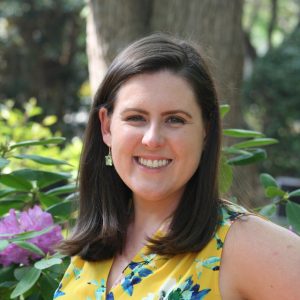
NC: At NC State, we encourage students to “Think and Do.” I believe what this really means is “think critically” and “do what helps you grow.” We encourage critical thinking and experiential learning through activities like service-learning, internships, study abroad and undergraduate research. Done correctly, each of these types of programs offer students just that — opportunities to explore something outside of themselves — and build a set of skills that help them mature into good citizens, all while meeting the mission of the land grant university. Through these experiences, students also get to see classroom learning come to life. Often, these experiential learning opportunities afford students the chance to collaborate with individuals from diverse backgrounds and recognize that communicating and listening are essential to coming up with creative solutions and problem-solving.
How do you support student success at NC State in your role?
JM: I recently had the privilege of attending an advising conference for NACADA – the Global Community for Academic Advising. One of the sessions focused on how the role of the academic advisor tends to straddle the lines of student affairs and academic affairs, when thinking about the student experience. While it was an interesting session, it also reaffirmed the importance of academic advisors at the university and how we can support our students’ success.
I believe I support my students’ success by learning about who they are, and what their goals mean to them. I also try to challenge them to learn more about themselves, as well as what the university can offer them. We get to have conversations about the classroom experience, co-curricular experiences, and how they can balance both as they move through their time in college.
NC: In my role as a teaching assistant professor and undergraduate teaching coordinator, I encourage students to engage in experiential learning early and often. In the short-term, early and often engagement involves diving into academic material in regular intervals to building both academic understanding and time management skills. Less immediate, but equally valuable, early and often long-range engagement includes pursuing professional career-related experiences like internships, undergraduate teaching and research, and professional development. The combination of short-term and long-range engagement molds students who are well equipped for their future careers. In our discipline, that means building critical thinkers who will be able to communicate science to the public, nutrition educators who can motivate behavior change in community members, healthcare providers who apply science to bettering the lives of their patients, and public health professionals who are not afraid to offer creative solutions to ensuring access to healthy living for all individuals.
One of the courses I teach is a service-learning course where students teach a nutrition education curriculum in the community. The course design allows students to build skills as nutrition educators in an incremental fashion, offering support from their teammates and from our teaching team to help them mitigate the stress associated with teaching in the community for the first time. It is through this type of training that students can view a rigorous training as “eustress,” or good stress, motivating them to critically reflect on how they can improve each week and make tangible goals to build both their skill and their confidence in that skill.
The beauty of service-learning programs is that they provide students with a chance to practice what it means to be a nutrition educator before they are in their first job. That means that if they “fail” the first time they teach a lesson, it is OK because they have the support to improve before they teach a similar lesson in the community the next week. Community members are excited to learn from students, and this creates a positive environment for them to build confidence in effective teaching practices. For some students, through service-learning they discover a passion for teaching nutrition in the community. For others, they discover that teaching in the community is not for them — and that’s just as valuable. For both sets of students, they develop not only discipline-specific skills, but also soft skills like communication, flexibility and teamwork.
Ultimately, as an advisor and mentor, my goal is to connect students with the resources they need to find that internship, research experience, study abroad experience or summer job that will allow them to explore what a future career might look like in our discipline. Through this they can determine tangible ways that they can apply their passions and make an impact.
Where does NC State have opportunities to grow in terms of student success?
JM: Our university has so much to offer our students to aid in their success, it can be overwhelming and challenging for staff to know about all of the great resources that can support student success. Unfortunately, it can become very easy to work in our “silos.” I think we can do a better job of communicating and building partnerships so we do not duplicate student success efforts. I see building partnerships as another way to provide students with an intentional educational experience.
Also, in reflecting on the recent NACADA conference session I mentioned, we are ahead of the curve in the union of academic and student affairs. However, since this union is still relatively new, I see an area of growth as creating more amazing partnerships between our student affairs units and academic affairs units.
NC: NC State has a wide variety of programs available to students, affording them the opportunity to grow as professionals and find the way they will make an impact on society. As we train students who will solve large problems in society, we need to continue to build programs that will encourage collaboration between students of different backgrounds and expertise. It is through these types of interactions that the most creative solutions to our big problems will be reached.
In what areas do you believe that NC State has made the most progress related to student success?
JM: One of NC State’s biggest assets in relation to student success is our amazing staff. We have faculty and staff and who really care about the students and will work hard for their success. In addition to great employees, we have so many amazing opportunities for our students to help them leave their mark on the world. With programs like the Goodnight Scholars, undergraduate research, the rigor of our academic coursework, and resources like our innovative libraries and Talley Student Union, students have the resources to help them their goals.
NC: NC State continues to make progress in creating new opportunities for students, connecting students to resources and stretching them through rigorous academic programs. With a network of faculty, staff and administrators dedicated to improving the student experience, we foster a community where students know that they have the support they need to try, to improve and ultimately to succeed in their own way.
Learn more about NC State’s efforts to support student success through comprehensive educational activities and initiatives.
- Categories:
